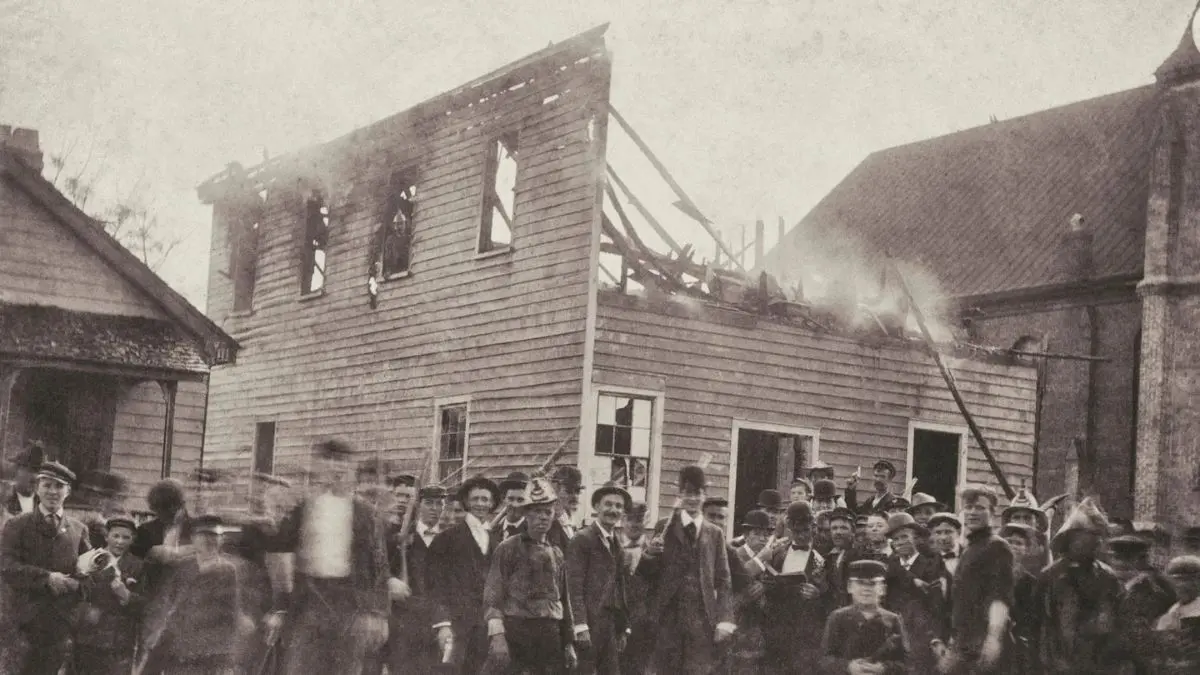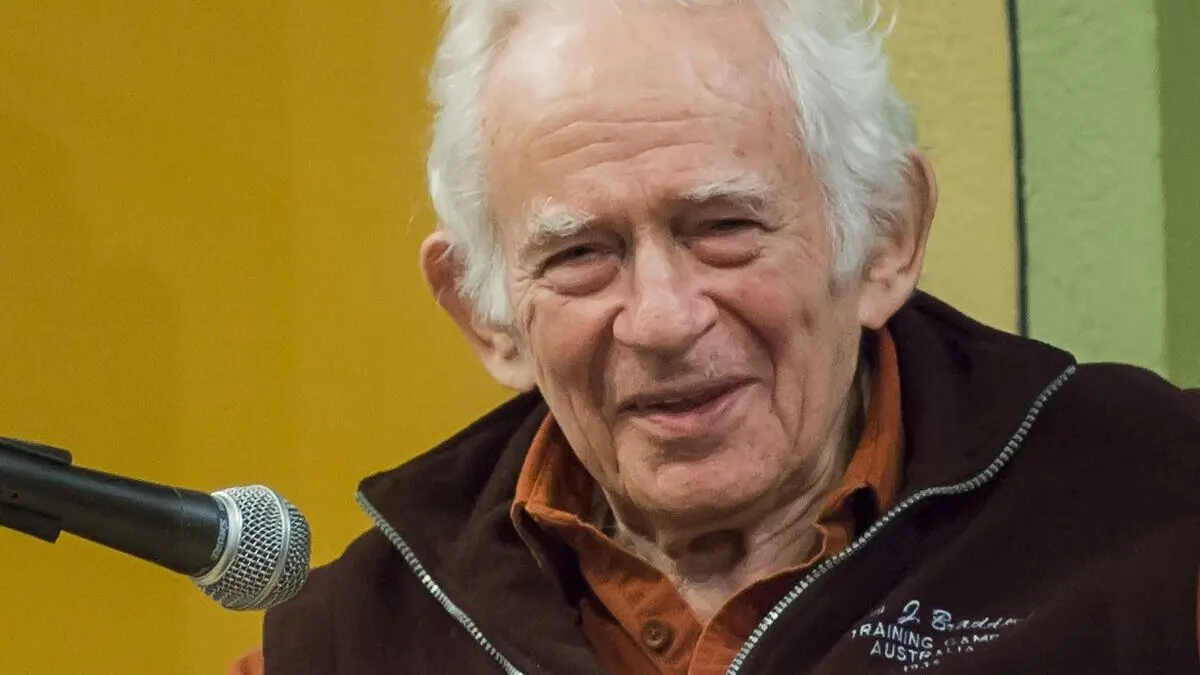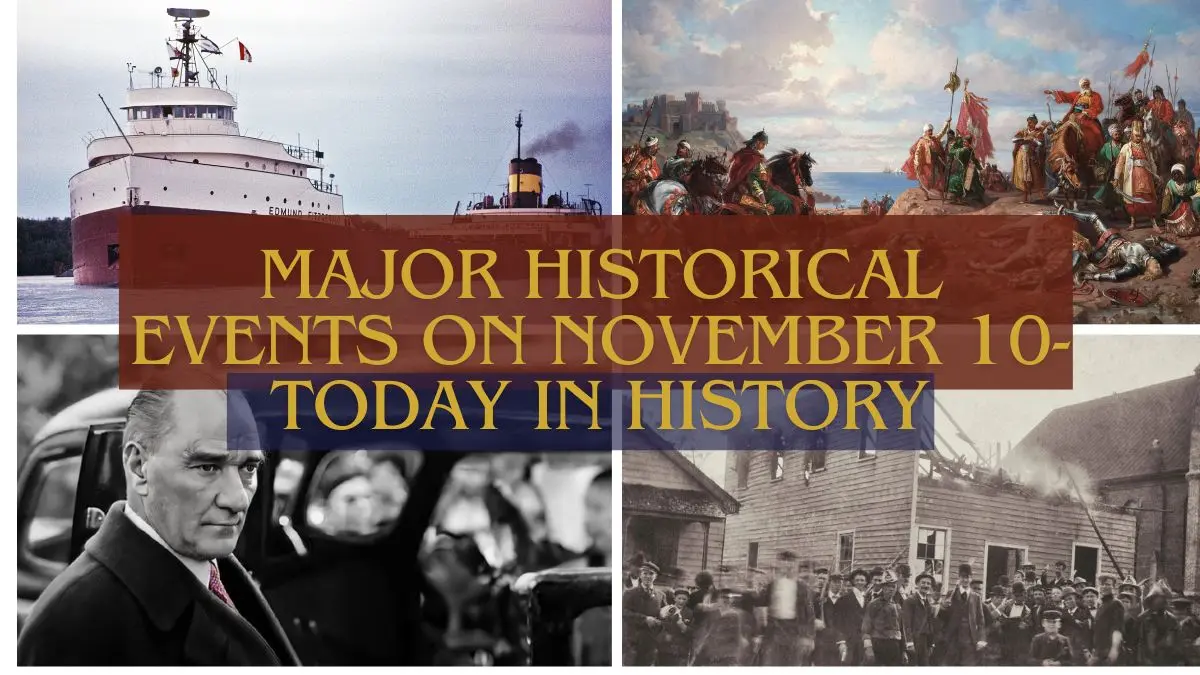Every day brings a fresh opportunity to look back at the past and remember the key events that left a lasting mark. Join us as we explore some of the major historical events of November 10, spanning politics, science, culture, and more, to appreciate the legacy they leave behind.
Major Historical Events on November 10- Today in History
Conrad I Ascends as German King – 911 AD
Following the death of Louis the Child, Conrad I was elected as German king in Forchheim, marking the end of East Frankish Carolingian rule and the rise of local noble influence in German leadership.
Ottoman Triumph at the Battle of Varna – 1444 AD
In a decisive victory, Turkish forces defeated the Hungarians at Varna, cementing their dominance over Constantinople and securing the Ottoman foothold in the Balkans for centuries.

Founding of the United States Marine Corps – 1775 AD
The Continental Congress established the U.S. Marine Corps, authorizing two battalions to serve during the Revolutionary War, forming the backbone of America’s naval infantry forces.
Stanley and Livingstone’s Historic Encounter – 1871 AD
In 1871, explorer Henry Stanley famously greeted fellow explorer David Livingstone with “Dr. Livingstone, I presume?” symbolizing their shared quest to explore Africa’s Nile region.
Vachel Lindsay: Poetry of the People – 1879 AD
American poet Vachel Lindsay, known for his rhythmic verse aimed at reviving oral poetry, was born; his work sought to make poetry accessible and engaging for the general public.
The Violent Wilmington Insurrection – 1898 AD
A multiracial government in Wilmington, North Carolina, was violently overthrown by white supremacists, resulting in the deaths of up to 60 Black citizens and marking a tragic episode of racial violence in the U.S.

Patent Granted for Windshield Wiper – 1903 AD
Inventor Mary Anderson was granted a patent for the windshield wiper, a device designed to clear rain, snow, and debris from a vehicle’s windshield, enhancing driver visibility and safety.
Piłsudski Declares Polish Independence – 1918 AD
Józef Piłsudski, revolutionary leader, arrived in Warsaw to proclaim Poland’s independence, marking the re-emergence of Poland as a sovereign state after 123 years of partition.
Birth of Richard Burton: Icon of British Cinema – 1925 AD
Welsh actor Richard Burton, celebrated for his roles as complex, world-weary characters, was born, later becoming one of Britain’s most acclaimed actors of stage and screen.
Legacy of Kemal Atatürk – 1938 AD
Kemal Atatürk, founder of modern Turkey and a reformist leader who transformed the country into a secular republic, passed away, leaving a legacy of progressive change and nationalism.

The Hope Diamond Finds a New Home – 1958 AD
The famed Hope Diamond, one of the world’s largest blue diamonds, was donated to the Smithsonian Institution, where it continues to draw visitors as a top attraction.
Birth of Neil Gaiman: A Master Storyteller – 1960 AD
Celebrated British author Neil Gaiman, known for works like The Sandman and American Gods, was born, later influencing fantasy literature and graphic Novels worldwide.
Debut of Sesame Street – 1969 AD
The beloved children’s show Sesame Street premiered, introducing iconic puppet characters like Elmo and Big Bird, revolutionizing educational television worldwide.
Tragic Sinking of the Edmund Fitzgerald – 1975 AD
The American freighter Edmund Fitzgerald sank on Lake Superior, taking all 29 crew members and inspiring a song by Gordon Lightfoot, cementing its status as a Great Lakes legend.

Death of Soviet Leader Leonid Brezhnev – 1982 AD
Leonid Brezhnev, who led the Soviet Union for nearly two decades, passed away, ending an era marked by political stability but economic stagnation.
Home Alone Premieres and Becomes a Classic – 1990 AD
The holiday comedy Home Alone premiered, capturing audiences worldwide and establishing itself as a seasonal favorite with its unforgettable storyline and sequels.
China and Taiwan Join the World Trade Organization – 2001 AD
After years of negotiations, China’s entry into the WTO was approved, followed by Taiwan’s the next day, marking a new era for global trade relations.
Norman Mailer: Pioneer of New Journalism – 2007 AD
Norman Mailer, a novelist who shaped New Journalism by blending narrative fiction techniques with factual reporting, passed away, leaving a profound literary legacy.

West German Chancellor Helmut Schmidt Passes Away – 2015 AD
Helmut Schmidt, influential leader and former West German chancellor known for his pragmatic policies and strong leadership in Europe, died at the age of 96.
Evo Morales Resigns Amid Controversy – 2019 AD
Bolivia’s first Indigenous president, Evo Morales, resigned under pressure after disputed election results; the controversy ignited debates over election integrity in Latin America.
Also Read: Major Historical Events on November 9- Today in History



